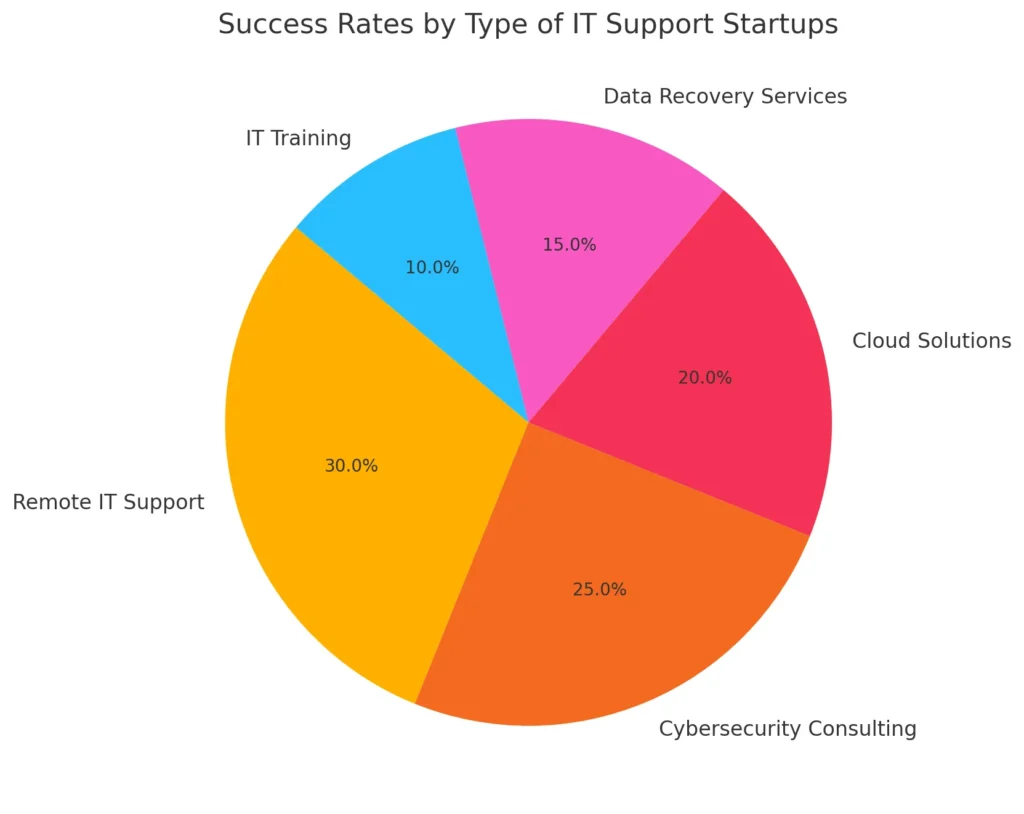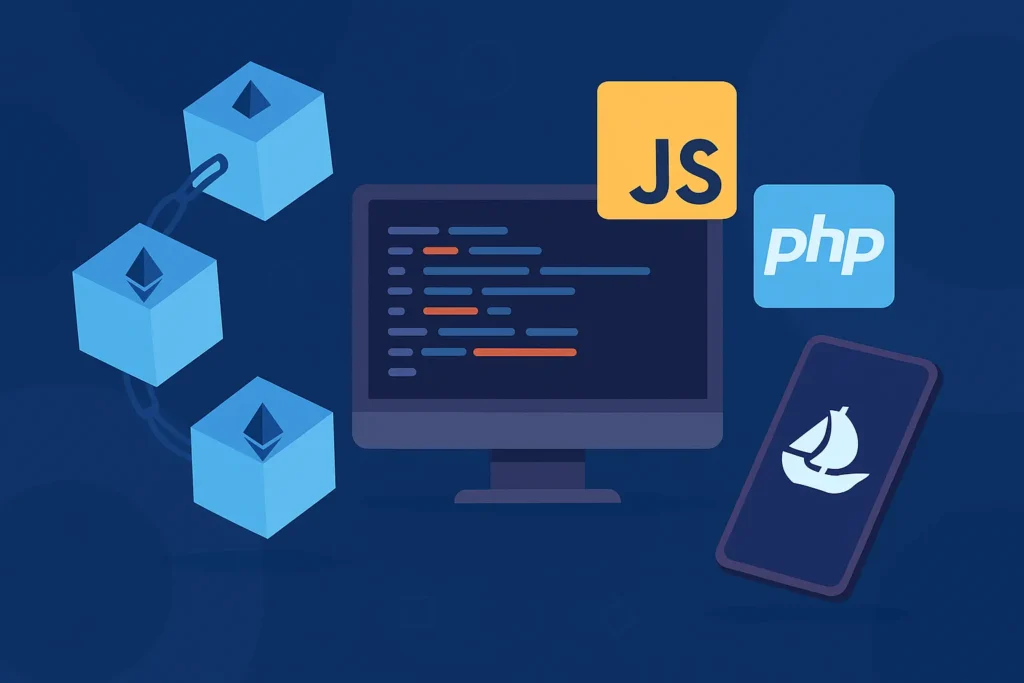In today’s fast-paced digital world, the demand for reliable IT support and troubleshooting services has skyrocketed, driven by businesses of all sizes relying on technology to operate smoothly. The IT support industry, covering everything from remote technical assistance to cybersecurity solutions, is not only resilient but is projected to continue growing as technology advances. For aspiring entrepreneurs, launching an IT support and troubleshooting startup opens doors to a promising field where the need for skilled service providers is constant.
| Metric | 2022 | 2023 | 2024 (Projected) | Growth Rate (%) |
|---|---|---|---|---|
| Global IT Support Market Size | $92 billion | $98 billion | $105 billion | 7.1% |
| Annual Growth in IT Support Demand | 6.5% | 7.2% | 8% | – |
| Key Drivers | Remote Work, Cybersecurity Needs, Digital Transformation | Cloud Computing, Cyber Threat Mitigation, Remote Assistance | AI Integration, Data Privacy, Increased Device Usage | – |
Why Choose IT Support and Troubleshooting?
With the world going digital, IT support has become essential across almost every industry, from healthcare to finance and education to retail. The increasing adoption of remote work, a surge in cyber threats, and the rise of cloud computing have all fueled demand for reliable IT support solutions. For aspiring entrepreneurs, this means a lucrative opportunity to provide essential services that can empower other businesses to operate smoothly, stay secure, and adapt to technology’s rapid evolution.
Starting an IT support business offers the potential to grow alongside the digital transformation wave. Many companies now rely heavily on efficient IT systems, whether to manage vast data flows, provide secure online services, or enable remote work setups. As technologies such as AI and machine learning continue to reshape industries, IT support businesses that can provide these cutting-edge services are increasingly valuable. This sector’s continuous demand and rapid advancements make it one of the most resilient and promising fields for new entrepreneurs.
Read more: – Top 10 Ideas for IT Consulting Business Startups in 2025
Current Trends and Future Opportunities in IT Support and Troubleshooting
| Trend/Technology | Description | Impact on IT Support | Opportunities for Startups |
|---|---|---|---|
| Cloud Computing | Shift to online data storage and operations | High demand for cloud troubleshooting and maintenance | Specialized cloud support services |
| Cybersecurity | Increased focus on data protection and threat management | Essential for safeguarding sensitive information | Cybersecurity-focused IT support |
| Artificial Intelligence | Use of AI for automated diagnostics and chatbots | Speeds up issue resolution, lowers costs | AI-driven support tools and automation services |
| Remote IT Support | Growing need for flexible, location-independent support solutions | Supports hybrid and remote work environments | Remote troubleshooting and virtual IT support services |
The IT support and troubleshooting sector is evolving quickly, shaped by emerging trends and the shifting needs of businesses worldwide. One of the most impactful trends is the rise of cloud computing, as more companies move their operations and data storage online. Cloud services require specialized support, making cloud-based troubleshooting a high-demand service area. Similarly, cybersecurity remains at the forefront, with businesses increasingly prioritizing secure IT infrastructures to protect sensitive information. This shift has led to a growing need for cybersecurity-focused IT support to manage threat detection, prevention, and incident response.
Another key trend is the application of artificial intelligence (AI) in IT support. AI-driven solutions such as chatbots and automated diagnostics are transforming how support services are delivered, enabling businesses to resolve issues faster and at lower costs. For IT support startups, integrating AI into service offerings not only improves efficiency but also appeals to clients looking for innovative, cost-effective solutions.
Looking to the future, remote IT support is expected to grow as hybrid and remote work models become more popular. Businesses need flexible, remote solutions to ensure seamless operations, regardless of where their teams are located. These trends collectively highlight opportunities for new startups to specialize in specific niches, whether in AI integration, cybersecurity, or remote support.
Read more : – Top 10 Ideas for Virtual Tech Support Business Startups for Entrepreneur
Top 10 Ideas for IT Support and Troubleshooting Business Startups
In the IT support landscape, there are numerous paths for new businesses to explore, each addressing a unique need within the market. Here are ten viable and exciting ideas for IT support and troubleshooting startups, each with its own focus, target audience, and growth potential.
| Business Idea | Startup Costs | Target Market | Profit Potential |
|---|---|---|---|
| Remote IT Support Services | Moderate | Small businesses, remote teams | High |
| Cybersecurity Consulting | High | Finance, healthcare, data-sensitive sectors | Very High |
| Cloud-Based IT Solutions | Moderate | Startups, mid-sized businesses | High |
| AI-Powered IT Support Tools | High | Large corporations, tech-driven companies | Very High |
| Data Recovery Services | Moderate | Businesses with large data needs | High |
| IT Help Desk Outsourcing | Moderate to High | Small to medium-sized businesses | High |
| Network Setup and Maintenance | Moderate | Small offices, co-working spaces | Moderate to High |
| Mobile Device Management (MDM) | Moderate | Enterprises with remote/mobile workforce | High |
| IT Infrastructure Consulting | High | Growing businesses, corporations | Very High |
| IT Training and Workshops | Low to Moderate | Corporate clients, educational institutions | Moderate |
1. Remote IT Support Services
Provide technical assistance remotely, helping businesses resolve issues without on-site visits.
- Target Market: Small businesses, remote teams
- Estimated Costs: Moderate (software, staffing)
- Startup Requirements: IT expertise, remote access software
2. Cybersecurity Consulting
Offer specialized support to secure business data and systems, focusing on threat prevention and management.
- Target Market: Finance, healthcare, and data-sensitive sectors
- Estimated Costs: High (cybersecurity software, training)
- Startup Requirements: Cybersecurity certifications, threat management expertise
3. Cloud-Based IT Solutions
Assist businesses in transitioning to cloud storage and troubleshoot cloud-related issues.
- Target Market: Startups, mid-sized businesses
- Estimated Costs: Moderate (cloud platform software)
- Startup Requirements: Cloud platform knowledge (AWS, Azure), troubleshooting expertise
4. AI-Powered IT Support Tools
Develop AI-based support tools, such as automated diagnostics or chatbots, for tech-driven support solutions.
- Target Market: Large corporations, tech-driven companies
- Estimated Costs: High (AI development resources, R&D)
- Startup Requirements: AI development knowledge, investment in R&D
5. Data Recovery Services
Help businesses retrieve lost data from system failures or cyber incidents with specialized tools.
- Target Market: Companies handling large volumes of data
- Estimated Costs: Moderate (data recovery software, training)
- Startup Requirements: Data recovery expertise, specialized recovery software
6. IT Help Desk Outsourcing
Provide outsourced help desk services for companies without an in-house IT team.
- Target Market: Small to medium-sized businesses
- Estimated Costs: Moderate to high (staffing, help desk software)
- Startup Requirements: Skilled IT support team, help desk software
7. Network Setup and Maintenance
Set up and maintain networks for businesses, handling initial setup, troubleshooting, and regular maintenance.
- Target Market: Small offices, co-working spaces
- Estimated Costs: Moderate (network hardware, software tools)
- Startup Requirements: Networking knowledge, access to hardware equipment
8. Mobile Device Management (MDM)
Manage and secure corporate mobile devices, protecting data across remote and mobile workforce environments.
- Target Market: Enterprises with a remote or mobile workforce
- Estimated Costs: Moderate (MDM software, security protocols)
- Startup Requirements: MDM software, mobile security expertise
9. IT Infrastructure Consulting
Provide consultation to optimize companies’ IT infrastructure for improved efficiency and scalability.
- Target Market: Growing businesses, corporations
- Estimated Costs: High (consulting resources, staffing)
- Startup Requirements: IT infrastructure knowledge, consulting skills
10. IT Training and Workshops
Offer IT workshops to improve non-technical staff’s IT literacy, focusing on cybersecurity, software use, and general IT skills.
- Target Market: Corporate clients, educational institutions
- Estimated Costs: Low to moderate (training materials, setup)
- Startup Requirements: Knowledgeable trainers, course materials
Real-World Examples
Starting a business in IT support and troubleshooting is more than just a theoretical venture—it’s a proven, growing field with many success stories. Real-world examples showcase how startups have carved out unique spaces within this industry, adapting to changing technology needs and client demands. From small IT support firms specializing in remote assistance to large cybersecurity consulting businesses, successful companies have demonstrated how valuable and profitable IT support can be.

One prominent example is the rise of remote IT support firms. Many startups in this space have successfully provided businesses with remote troubleshooting and network management, particularly as remote work has become more common. These companies have helped clients save on costs by offering virtual support, proving that remote IT solutions are not only effective but also scalable.
In cybersecurity, several startups have gained attention by offering specialized support to protect sensitive data. These companies focus on safeguarding information from rising cyber threats, such as data breaches and ransomware attacks, which have become more frequent. Their success highlights the demand for security-focused IT support, especially as more businesses prioritize data protection.
Mistakes to Avoid When Starting an IT Support and Troubleshooting Business
Launching an IT support and troubleshooting business can be highly rewarding, but there are common pitfalls that many new entrepreneurs encounter. Understanding these mistakes and how to avoid them can give your startup a stronger foundation, setting you up for success.
| Common Mistake | Description | Preventive Measure |
|---|---|---|
| Poor Customer Communication | Not keeping clients informed or responding slowly to issues | Establish dedicated communication channels and provide timely updates |
| Lack of Competitive Analysis | Ignoring competition or failing to define unique services | Conduct competitive analysis and emphasize niche expertise |
| Overextending Resources | Offering too many services initially, stretching resources too thin | Start with a focused set of services and expand gradually |
| Inadequate Technical Training | Team lacking the necessary skills for specialized IT support | Invest in ongoing training and certifications |
| Ignoring Market Trends | Failing to adapt to emerging tech and industry trends | Regularly research market trends and adjust services accordingly |
One frequent mistake is overlooking the importance of customer communication. IT support is, at its core, a service-based business. Clients rely on prompt, clear communication to feel secure and supported. Failing to keep clients informed or not responding quickly to issues can lead to lost trust and potential business. Establishing a dedicated communication channel and providing timely updates is essential.
Another common misstep is underestimating the competition. The IT support industry is highly competitive, with many established companies and freelance professionals vying for clients. New startups sometimes make the mistake of not researching their competitors thoroughly or failing to define what sets them apart. Conducting a competitive analysis and highlighting unique services—like niche expertise in cybersecurity or specialized cloud solutions—can help position your startup effectively.
Overextending resources is another pitfall. For example, some startups attempt to cover too many services initially, which can stretch their resources thin and affect service quality. Starting with a focused set of services that align with your team’s strengths and gradually expanding can help maintain high standards without overwhelming your business.
Why Trust Miracuves Solutions for Your Next Project?
Choosing the right partner for your IT support needs can be the defining factor in the success of your business. With Miracuves Solutions, you gain more than just technical assistance—you gain a team that understands the complexities and unique demands of the IT support and troubleshooting industry. Our expertise spans a wide range of IT services, from cloud solutions to cybersecurity, designed to address the needs of modern businesses.
At Miracuves Solutions, our approach is rooted in client success. We’ve worked with businesses across various industries, tailoring solutions to match their specific requirements and helping them achieve seamless, efficient operations. Our focus on innovation ensures that your IT infrastructure isn’t just well-supported, but also forward-looking and equipped with the latest in technology and security practices.
Whether you’re a startup looking to establish a strong IT foundation or a growing business in need of specialized support, Miracuves Solutions has the experience and commitment to help you reach your goals. Our proven track record and client-centric approach make us a trusted partner in navigating today’s digital landscape.
Read more ; –Top 10 Ideas for Repair and Maintenance Electronics Business Startups
Conclusion
Starting an IT support and troubleshooting business can be a promising venture, filled with opportunities to serve a growing demand in today’s tech-driven world. With careful planning, a focus on key industry trends, and a commitment to quality service, your startup can stand out and thrive. From selecting a niche like cybersecurity or cloud solutions to ensuring excellent client communication, each step contributes to building a reliable and successful business.
Taking the time to understand market needs and avoiding common startup pitfalls can make all the difference in setting up a strong foundation. The path to a thriving IT support business may require dedication and adaptability, but with the right approach, it’s a journey well worth the effort.
FAQs
What are the essential skills for starting an IT support business?
Technical proficiency, problem-solving abilities, and strong communication skills are essential. Knowledge in areas like cybersecurity, cloud computing, and network troubleshooting can give a competitive edge.
How much does it cost to start an IT support business?
Startup costs vary but typically range from moderate to high, depending on the services offered and technology investments. Remote IT support may require less, while cybersecurity solutions could need more upfront investment.
What services are in high demand for IT support startups?
Cybersecurity, remote support, cloud solutions, and mobile device management are some of the most sought-after services, driven by trends in remote work and digital transformation.
How can I attract clients for my IT support business?
Networking, online marketing, and offering value-added services like free consultations can attract clients. Building a reputation through reliable service is also key for long-term client retention.
What challenges should I expect when starting an IT support business?
Common challenges include competition, maintaining up-to-date technical skills, and managing client expectations. Clear communication and continuous learning can help overcome these obstacles.
Related Articles; –







